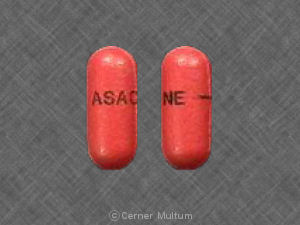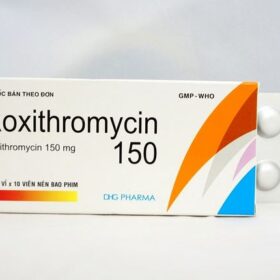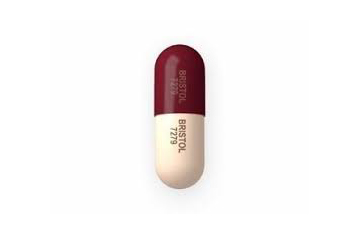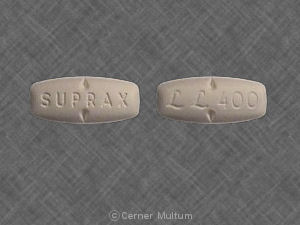
Product
General information
Asacol belongs to the group of medications known as anti-inflammatories. It is used to treat mild to moderate ulcerative colitis and mild to moderate Crohn’s disease. It acts by reducing inflammation in the bowel. Asacol does not cure ulcerative colitis, but it may decrease symptoms such as stomach pain, diarrhea, and rectal bleeding caused by irritation/swelling in the colon/rectum. It works by keeping your body from making certain natural chemicals that may cause pain and swelling.
Directions
Take Asacol exactly as prescribed by your doctor. Take this medication by mouth with or without food, usually 3 times daily. The dose of this medicine will be different for different patients. It is based on your medical condition and response to treatment. For the treatment of ulcerative colitis the dose is two tablets three times a day. For maintenance (long-term) treatment, 1600 mg per day in divided doses.
Precautions
Before taking Asacol you should talk with your doctor if you you are allergic to it or to salicylates if you have kidney or liver problems, asthma, abnormal emptying of stomach (pyloric stenosis), pancreas problems (pancreatitis), inflammation of the sac around the heart (pericarditis). This drug may make you dizzy. Do not drive or do any activity that requires alertness. Limit alcoholic beverages.
Contraindications
Do not take Asacol if you are allergic to any of the ingredients of the medication, if you have gastric (stomach) or duodenal (intestinal) ulcer, urinary tract obstruction. Not recommended for children under 2 years of age. Inform your doctor if you are pregnant or breastfeeding.
Drug interactions
Tell your doctor about all other medications you use, especially: warfarin, sulfonylureas (gliclazide, glyburide), nonsteroidal anti-inflammatory drugs (ibuprofen, naproxen), digoxine, furosemide, azathioprine, spironolactone, probenecid, nadroparin, dalteparin, enoxaparin, ardeparin, tinzaparin, methotrexate. Interaction between two medications does not always mean that you must stop taking one of them. Tell your doctor about all prescription, over-the-counter, and herbal medications you are taking.
Missed dose
Take the missed dose as soon as possible. Skip the missed dose if it is time for your next scheduled dose. Don’t take extra medicine to make up the missed dose.
Overdose
If you think you have overdosed the medicine seek emergency medical help at once. The overdose symptoms are wheezing, seizures, drowsiness, diarrhea, ringing in the ears, headache, lightheadedness, fast breathing, sweating, confusion, vomiting, hearing loss, nausea.
Storage
Store the medicine at room temperature between 68-77 degrees F (20-25 degrees C) away from light and moisture. Store it in a tight container.
Note
The information presented at the site has a general character. Note please this information cannot be used for self-treatment and self diagnosis. You should consult with your doctor or health care adviser regarding any specific instructions of your condition. The information is reliable, but we concede it could contain mistakes. We are not responsible for any direct, indirect, special or other damage caused by use of this information on the site and also for consequences of self-treatment.
Possible side effect
Get emergency medical help if you have stomach pain, fever, blurred vision, bloody diarrhea, dizziness, rectal bleeding, nervousness, itching, weakness, pounding in the ears, slow or fast heartbeat, back pain, vomiting, yellow eyes or skin, anxiety, chest pain, hair loss, loss of appetite, muscle pain. If you notice other effects not listed above, contact your doctor.








Reviews
There are no reviews yet.